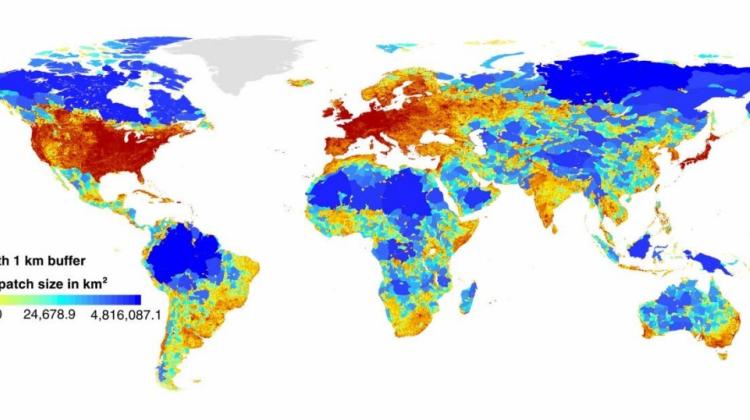President of the Foundation for Polish Science: We want to unblock the Polish science system

Study shows that 43 percent Polish scientists have not published anything in the last 3 years, but these people are employed by universities - said Prof. Maciej Żylicz, president of the Foundation for Polish Science. The foundation wants to unblock the clogged science system, among other things, by creating posts for young researchers.
Foundation for Polish Science - the largest non-governmental organization supporting science in Poland - celebrates its 25th anniversary this year. During that time, it has awarded over 928 million zlotys to Polish science and scientists, handed over 10,000 individual grants, subsidies and awards, supported more than 300 research teams.
PAP: What were the needs of Polish science that the foundation supported with grants at the very beginning, and what needs does it plan to support now?
Prof. Maciej Żylicz: Back then we were all hungry for equipment. The foundation awarded a lot of money for the purchase of new equipment, renovation of laboratories, libraries, saving library collections. At this point equipment is purchased with structural funds, so we have completely abandoned this kind of activity.
Those were completely different, difficult times. Grant system was just beginning, there were professors who boasted that they had never applied nor would they ever apply for a grant from the Committee for Scientific Research (institution established to distribute budgetary funds for science). It was necessary to break the mental barrier and convince people that they should apply for money for research. In those days I was vice-rector for science at the University of Gdańsk and I was creating the first internal grant system. The shortest grant application that I received was: "I am a professor. Please give me the money". Back then it was absolutely clear that if someone was a professor, he had to get the money. This person, however, did get any.
Important things in the current activity of the foundation are individual grants and what is always missing in Poland: naming those who are really good by giving them prizes, awards. We are still lacking the culture of quality, in which people are appreciated for doing great job. It was possible to become a member of the Polish Academy of Sciences without any or with little scientific achievements. The more necessary is to point the finger: this is a good scientist.
PAP: The Polish system of science and education does not motivate to do a good job?
M.Ż.: In Poland it does not pay to be good. Two years ago the Ministry of Science allocated additional money to raise the salaries of academics. In some, even very good universities, the money went to the scientists who did not have external grants, assuming that those who have grants do not need more money. In Poland people who work well are not rewarded: not with salaries or prizes or awards.
About 10 percent academics working in Poland "produce" 50 percent of all Polish publications and patents. In this respect we are no different from other EU countries. We differ greatly in one respect: 43 percent Polish academics have not published anything in the last three years. In Germany it is between 10 and 20 percent, in the UK less than 10 percent, as demonstrated by a study conducted by Prof. Marek Kwiek from Adam Mickiewicz University in Poznań. But for some reason these people continue to work at Polish universities. This is another element that shows that our system does not motivate to work well.
PAP: In your opinion, what is the greatest failure of the Polish science in the last quarter century?
M.Ż.: One of the most important failures is the low level of internationalisation of science. We can open universities for foreign students, but for this to happen - we need to have good teachers, and some of them must come from abroad. The situation is similar when we look at the "production" of scientific results. If we look at the most cited papers created in Poland, for the most part they relate to studies carried out within the framework of international cooperation. Without such cooperation it is very difficult to break through to good scientific journals. Statistics show that in order to do this, you need to have a brand. This is of course a little unfair, that not only the quality counts, but this is the reality. The internationalisation of science will not only open our universities for foreigners, it will also make publishing easier.
This in turn could open the way for Polish researchers to more effectively apply for international grants, for example the European Research Council (ERC) grants. I was chairman of one of the ERC panels for four years and I had only one Polish application, which was rejected right from the start anyway. It is largely due to the fact that we do not have ground-breaking publications. For Polish scientists, publishing in a good journal is not worthwhile. In the parametric evaluation of scientific units, publication of 2-3 papers in an average Polish journal is worth the same amount of points as one paper published in "Nature" or "Science". The latter requires a lot more work and time. It is once again a question of our regulations. The parametric evaluation system does not stimulate to publish in the best journals, and we drop out of the race for international grants right from the start.
PAP: How can we reverse this trend?
M.Ż.: We must organize real and not formal competitions for jobs in science, so that people outside the institution can also apply. For now, most of the competitions are a total fiction. Changing this situation will help to increase the level of internationalisation.
When it comes to the work of scientists, Prof. Kwiek from AMU writes that at a western university a 40-year-old spends about 25 hours per week on research. In Poland, only half that time. The same 40-year-old in the west spends nine hours teaching, and in Poland almost 20 hours. For young people who choose a career in science, it is slavery. They have a big teaching load, which means no time for research.
Our system of science and higher education is clogged. Old professors do not want to retire because pensions are very low. Therefore, they sit in their chairs, young people do not have jobs, and the vicious circle persists. Through our programs we want to create jobs for young scientists - those who return from abroad and those who are already in Poland and want to form their own research teams, something that does not exist in the Polish science.
PAP: Are the International Research Agendas (Międzynarodowe Agendy Badawcze, MAB) announced by the foundation an element of this strategy?
M.Ż.: MABs are intended to be new units, employing the best people. We want to break the existing system, so we are building new research units from the bottom up. They may be companies, foundations, or operate within university structures. But then they must have an international agreement with another foreign entity that ensures that only the best will find employment in the MAB.
But an already existing university or PAS unit may not become a MAB. These institutions have faculty councils, research councils, whose members are many of these 43 percent non-publishing scientists. After all, they will not employ someone better than themselves. This way we break the biggest problem of Polish science: pathological democracy in which scientifically average people decide the fates of those much better than them. We want to unclog the system, we are making a bypass.
Importantly, this new institution should be built around a brilliant scientist. That\'s another thing that we lack in Poland, it rarely happens that a good scientist has an administrative role. In our system it will be a rule. It should be an ERC Advanced Grant (ERC grants for experienced researchers - ed. PAP) level person, which means that such people should be brought from abroad, because in Poland we have only a few winners of these grants.
The concept of these institutions is modelled on Max Planck institutes and international institutes in Catalonia. Each of these emerging units will receive about 10 million euros and will be eligible to apply for further 15 million euros from the European Union. Later this unit will be evaluated by the Polish science system, and if it is very good, it will continue, and if not - it will fall.
PAP: What are the other elements of the Polish science "unclogging" strategy?
M.Ż.: A new pogramme in our offer will be First Team for people who want to create their first research team. We also intend to do something completely new: create centres that will conduct research within companies and finance posts for young researchers in companies. The money from structural funds will run out in seven years. We have to invest it now so that when the time comes, someone else invest in research - the industry.
In Germany 90 percent doctors take a job in the industry, and only 10 percent continue research careers. The situation in Poland is the opposite. Besides, 1/3 of the money for science in Germany comes from the budget, 2/3 from the industry. If we do not change that, in seven years Poland will be a scientific desert.
Interview by Ewelina Krajczyńska (PAP)
ekr/ agt/ mrt/
tr. RL
Przed dodaniem komentarza prosimy o zapoznanie z Regulaminem forum serwisu Nauka w Polsce.


















